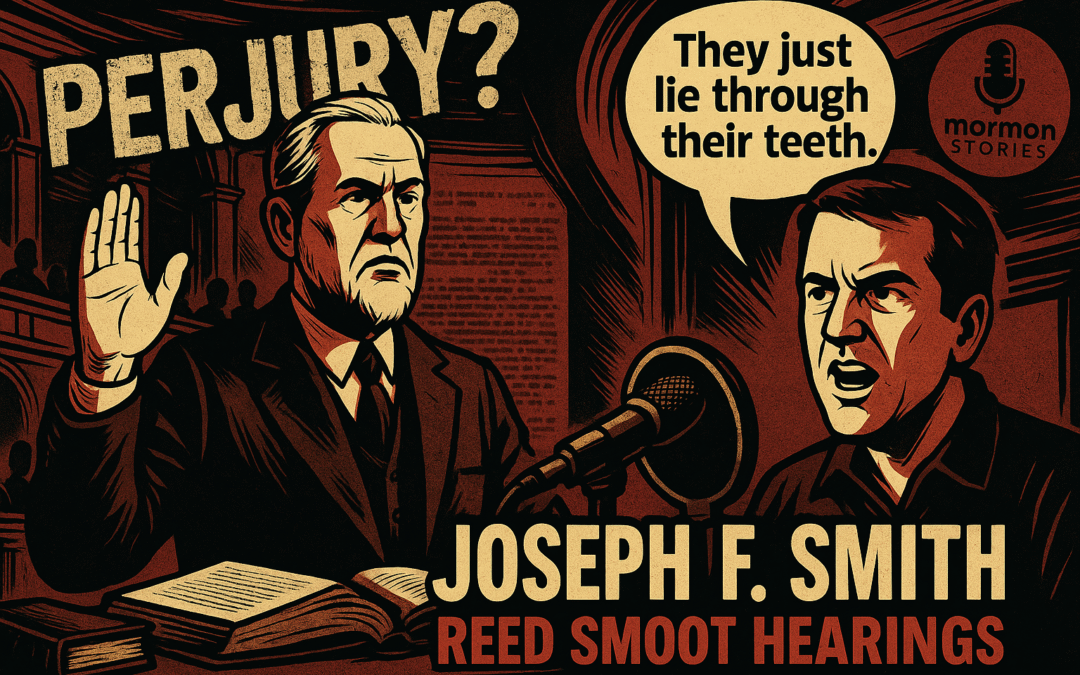Bottom Line
Joseph F. Smith’s legal testimony deserves scrutiny—not slander. Disagree with his tone or decisions, but do not accuse him of perjury without proof.
| Podcast | Mormon Stories – John Dehlin |
|---|---|
| Episode | “New Document Shows LDS Church Hid and Denied its own Prophet’s Polygamy Revelation” |
| Category | Church Leadership Integrity |
| Quote | “They subpoena Mormon leaders to go back to Washington… and under oath they have to talk about polygamy and they don’t want to and they dance around it. They play semantic games and sometimes honestly they just lie through their teeth.” — Narrator, 01:00:39–01:01:06 |
| Core Claim | Joseph F. Smith lied under oath during the Reed Smoot hearings. |
| Conclusion | Defamatory Risk / Misleading |
| Logical Questions |
|
🔍 Core Finding
The claim accuses Joseph F. Smith of criminal dishonesty in a federal hearing—without presenting evidence. This raises potential defamation concerns. Legal transcripts of the Reed Smoot hearings show that Smith answered questions carefully but directly under oath, reflecting the sensitive nature of polygamy history and institutional responsibility.
Church leaders at the time faced intense scrutiny from government and press alike. Ambiguity in testimony is not equivalent to lying unless proven false and intentional. No court or official ever ruled Smith perjured himself, nor was he charged with such.
⚖️ Legal vs. Narrative Accuracy
- Testimony was cautious but within legal bounds.
- No legal body found him guilty of perjury or misleading Congress.
- Charging someone with “lying through their teeth” without evidence is reputationally and legally reckless.
📚 Sources
- Reed Smoot Hearings Vol. 1 (U.S. Senate Archives)
- Mormoner.org – Reed Smoot Hearings Overview
- Prince, Gregory A. *David O. McKay and the Rise of Modern Mormonism*, Ch. 1–2

